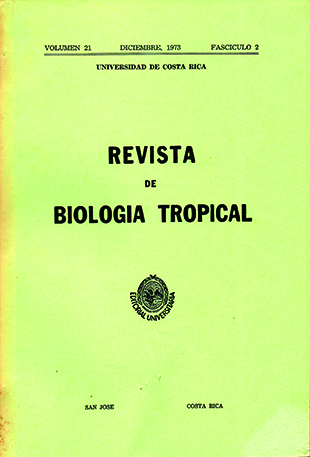Abstract
Triploid female fishes that closely resemble the gynogenetic, diploid, unisexual species Poecilia formosa Girard and its sympatric, bisexual congener Poecilia mexicana Steindachner constitute a significant, but not static, component ef naturally occurring populations of Poecilia in headwater localities of the Río Soto la Marina drainage in northeastern Mexico. The frequency of triploid females fluctuates markedly from year to year, from season to season, and from one locality to another. In laboratory breeding studies to assess the reproductive competence of triploid females as a factor influencing structure of wild populations of Poecilia spp., we have used electrophoresis oí blood plasmas and DNA-Feulgen cytophotometry of the nuclei from blobd cells or scale epithelium from live fishes to monitor the persistence of triploid genomes in four laboratory-reared generations of female progeny in stocks inítially derived from gravid, tríploid females collected from the Río Purificación at Barretal or from Vado el Moro, near Cd. Victoria, México. We conclude that many of the triploid females are reproductively competent and regularly transmit triploid genomes to their unisexual offspring. They presumably reproduce by gynogenesis, sínce breeding stocks of triploids can be maintained in the laboratory by matings with sympatric males of P. mexicana.##plugins.facebook.comentarios##

This work is licensed under a Creative Commons Attribution 4.0 International License.
Copyright (c) 1973 Revista de Biología Tropical
Downloads
Download data is not yet available.


